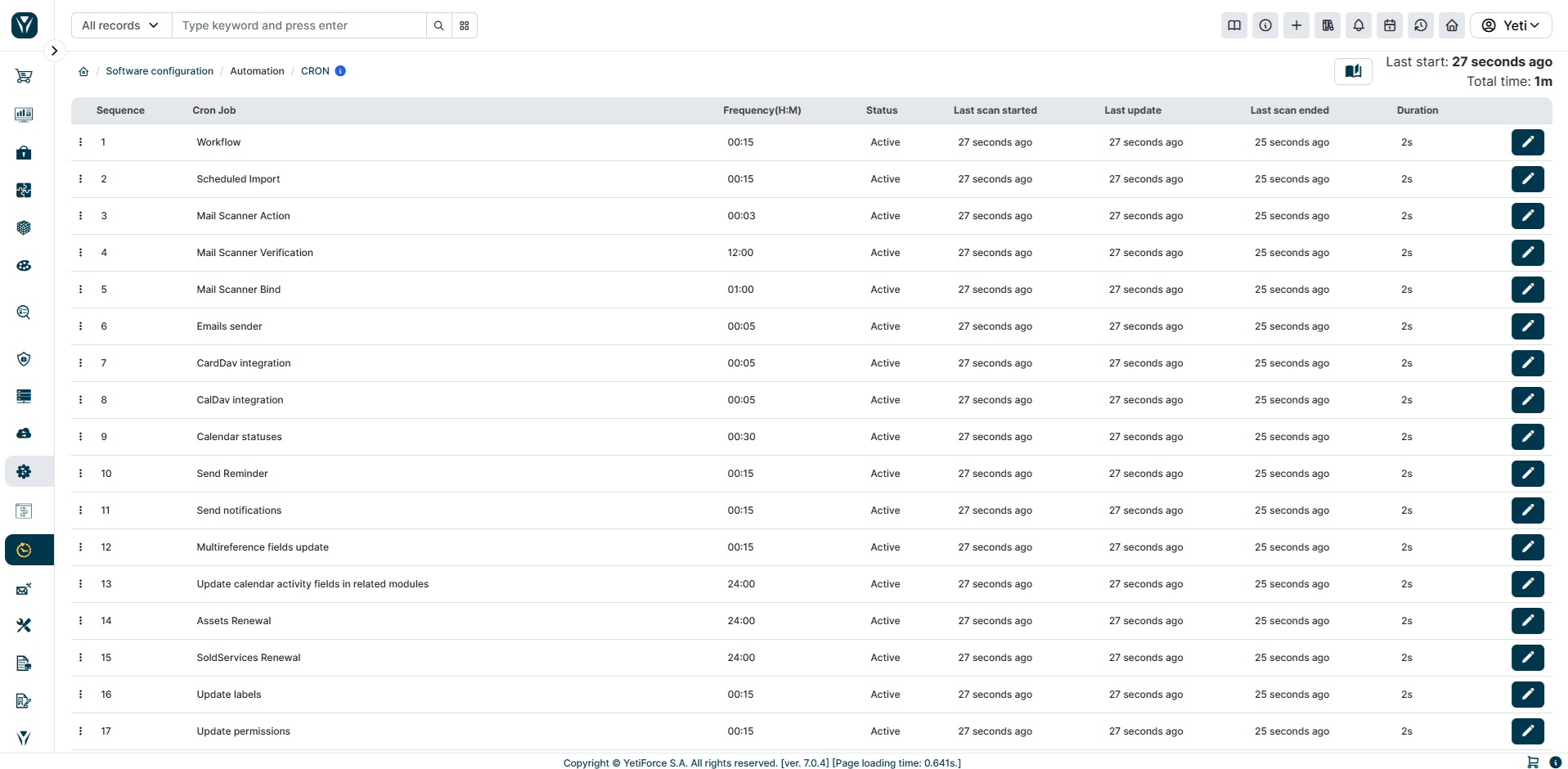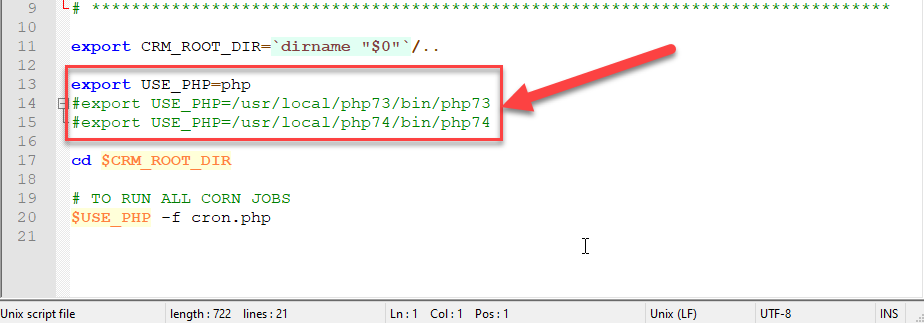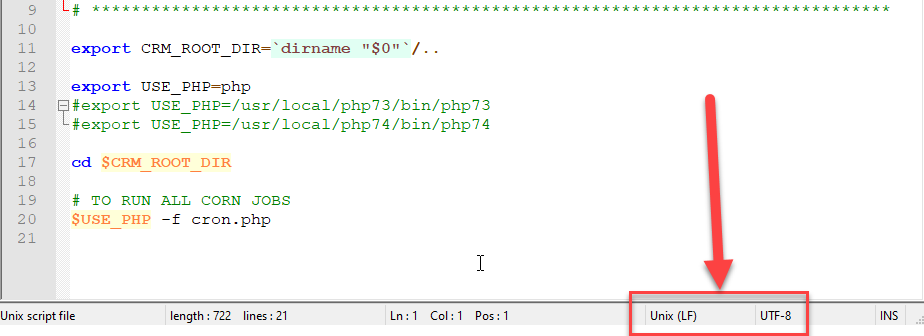CRON | Scheduler
CRON is a Unix daemon that triggers other programs periodically. It uses CRONTAB tables to store information about what task to run. It allows YetiForce to perform certain tasks automatically by triggering them in the background.

How to enable CRON?
CRON can be enabled in a few simple steps:
Linux
Edit CRONTAB via command
crontab -u www-data -e
Add the following line:
*/2 * * * * sh __YETIFORCE_PATH__/cron/cron.sh > __YETIFORCE_PATH__/cache/logs/cron.log 2>&1
__YETIFORCE_PATH__ is the full absolute path to the YetiForce system folder, e.g. /var/www/yetiforce.
If the above-mentioned method doesn't work on the Linux server distribution you are using, you can edit the /etc/crontab file directly or create a new /etc/cron.d/yetiforce file and add one of the following entries:
*/2 * * * * www-data sh __YETIFORCE_PATH__/cron/cron.sh > __YETIFORCE_PATH__/cache/logs/cron.log 2>&1
*/2 * * * * php __YETIFORCE_PATH__/cron.php > __YETIFORCE_PATH__/cache/logs/cron.log 2>&1
*/2 * * * * cd __YETIFORCE_PATH__; /usr/local/bin/php -f cron.php > __YETIFORCE_PATH__/cache/logs/cron.log 2>&1
- the script must be run by a user with the same permissions as the owner of the system files.
- only one CRON task for the YetiForce system can be added in CRONTAB.
Permissions
Change file permissions for __YETIFORCE_PATH__/cron/cron.sh to 744, so the only person permitted to execute it is its owner.

PHP path
Check that the PHP path settings in the cron.sh file are correct.
The cron.sh file is located at: __YETIFORCE_PATH__/cron/cron.sh. By default, it points to the alias name "php".
export USE_PHP=php
If the server has the correct version of PHP aliased, you don't need to do anything. You can verify this by running the following command:
php -v
If PHP is not aliased or the server has multiple versions of PHP installed, and you want to point to a specific one, set the exact path to PHP in the cron.sh file, e.g.:
export USE_PHP=/usr/local/php83/bin/php83
Make sure the PHP path is correct as it may be different for different servers.

Make sure the file has Unix line endings (LF).

Windows
Due to the lack of official support, it is not recommended to use Windows as a server for YetiForce.
Alternative ways to trigger YetiForce scheduler tasks (not recommended)
In case CRON is missing on Linux server
If your Linux server doesn't support CRON, you can alternatively run scheduled tasks via a URL.
https://`YETIFORCE_URL`/cron.php?app_key=xxxx
In case of problems with triggering CRON from the CLI
If your Linux server supports CRON, but there is a problem with the cron.sh script, you can add one of the following example call configurations to CRONTAB:
*/2 * * * * curl -s https://YETIFORCE_URL/cron.php?app_key=xxxx
or
*/2 * * * * /usr/bin/lynx -source https://YETIFORCE_URL/cron.php?app_key=xxxx
or
*/2 * * * * /usr/bin/wget -O - -q -t 1 https://YETIFORCE_URL/cron.php?app_key=xxxx
app_key is a key in the config/Main.php file, in the $application_unique_key variable.
